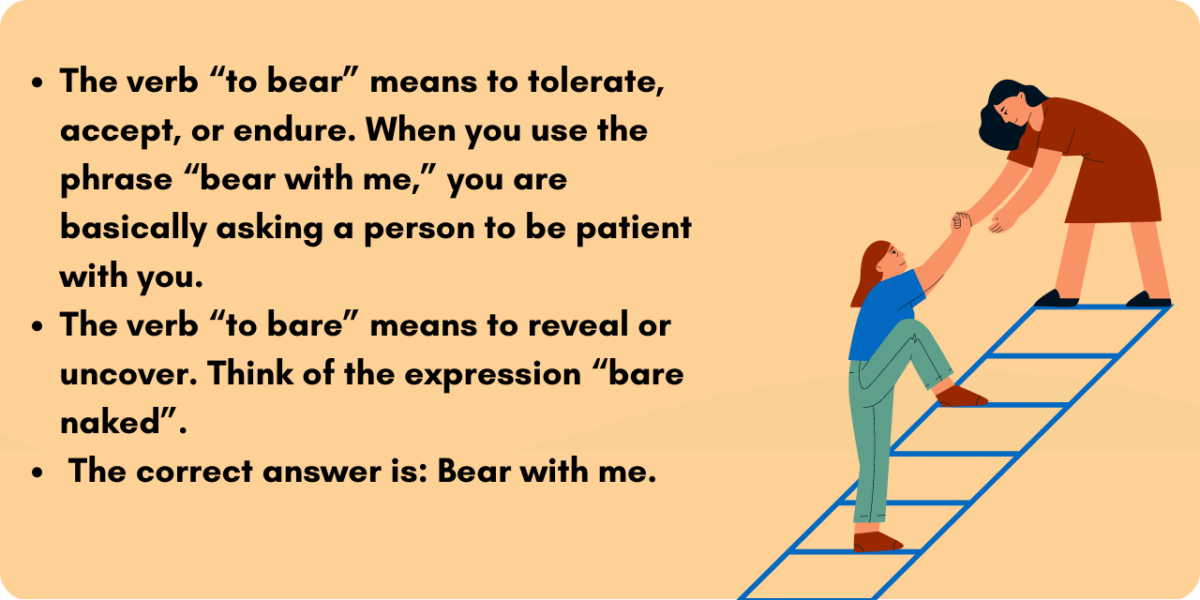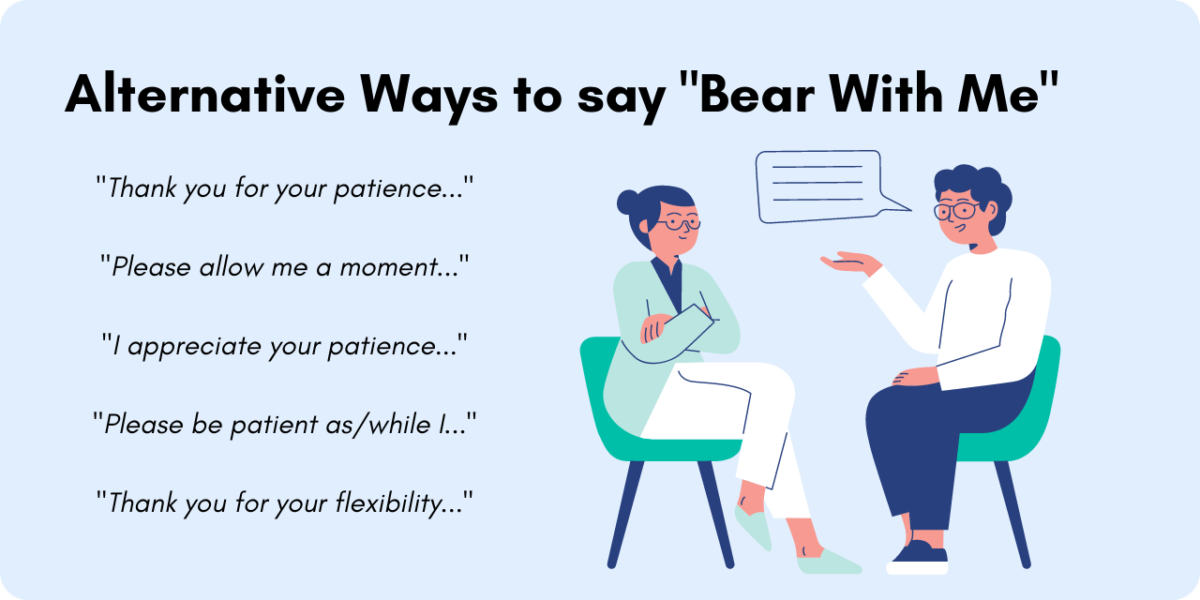Here’s one question you really need to answer correctly: Is it “bare with me” or “bear with me?” Choose wisely. Otherwise, your email to a coworker saying, “bare with me,” could inadvertently be inviting them to shed their clothes alongside you. Yikes!
The correct answer is: Bear with me.
And a simple trick to remember that is to picture a bear. A big grizzly bear, at that!
Now that you have that visual firmly implanted in your mind, consider the alternative: bare with me. “Bare” as an adjective means to be not clothed or covered. The verb “to bare” means to reveal or uncover. Think of the expression “bare naked”—and no, we don’t need to add an image here. You get the point!
Internet articles and even print publications (where are all the copyeditors these days???) are full of common grammar errors and expressions misused. This is especially true when it comes to homophones.

Homophones are words that are pronounced alike but are spelled differently and don’t mean the same thing. For example, seem and seam. Or bear and bare. And, to add more confusion, homophones’ close cousins—homographs and homonyms—may have identical spellings but different meanings—for instance, bow (as in a ship) and bow (as in arrows).
How to Use “Bear With Me” Correctly
Knowing the correct spelling to use is one thing—using the correct version of this phrase is another. The verb “to bear” means to tolerate, accept, or endure. When you use the phrase “bear with me,” you are basically asking a person to have tolerance or be patient with you.
Here are three examples that demonstrate how the phrase can be used (with some slight variations on the word bear):
- The bank manager asked the customer to bear with her as she reviewed the lengthy loan application.
- Please bear with me. I just arrived and am getting settled into my new office.
- Jane couldn’t bear it any longer; she had to quit her job.
Other Ways to Use Bear
Aside from the noun form of bear (as in a giant black bear), the word bear can be used as a transitive verb. Here are a few examples:
- The porch columns could no longer bear the weight of the roof.
- Have you noticed how much Abigail bears a resemblance to her aunt?
- Jerry knew it was wrong to bear malice toward his neighbor.
Alternative Ways to Say “Bear With Me”
If you feel the phrase “bear with me” is overused or not appropriate for your reader or audience, try some alternatives to this idiom that carry the same meaning. This is helpful especially when you are trying to avoid jargon in your business writing or presentations.
For example, an international audience or reader whose first language is not English may have trouble understanding the phrase.

Examples:
- Thank you for your patience. We will get the AC back on as soon as possible.
- Please allow me a moment to get my notes organized.
- I appreciate your patience as we get all guests checked into the hotel.
- I have multiple points to cover at this meeting. Please be patient with me as I attempt to address all of your questions.
- Thank you for your flexibility as I sort out the scheduling.
The Takeaway
So, bear with me as I make the point once more: It’s bear with me, not bare with me. This is the only correct way to use this expression.
When choosing the right word, bear should conjure up the image of a large furry animal patiently waiting in the woods for the campers to leave the picnic basket unattended. And bare should remind you of your 2-year-old nephew with no self-control streaking through the backyard.
Hopefully, those visuals will provide you the context needed to choose the correct spelling of this phrase every time.






